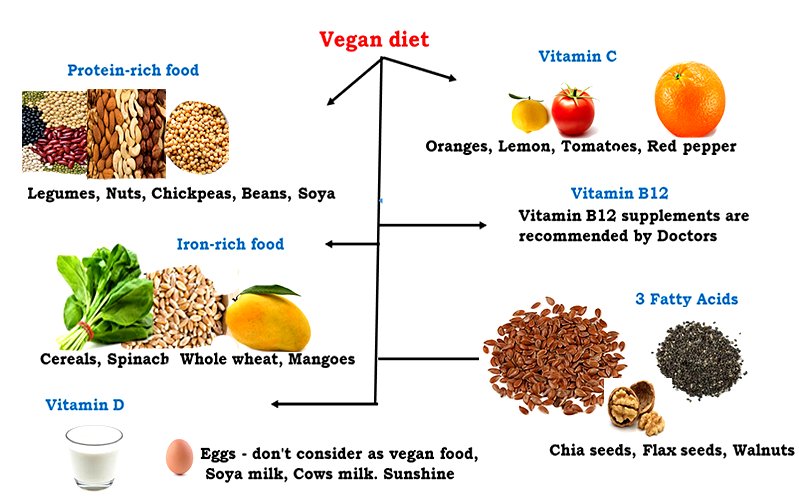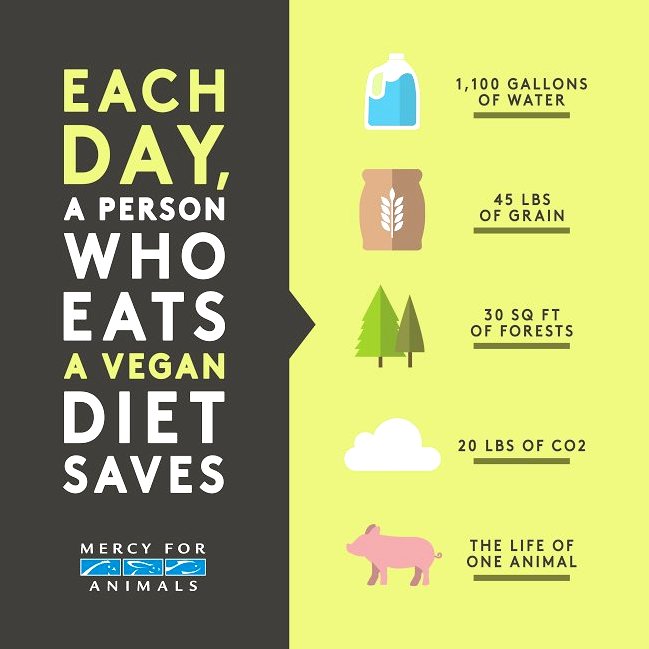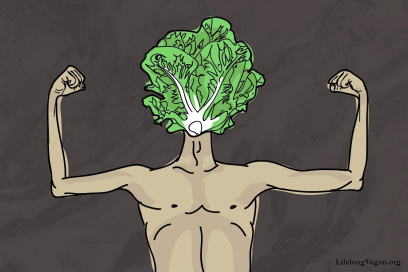As veganism becomes more and more mainstream, the tantalizing question of whether humans were meant to exist on a plant-based diet arises again and again. This engaging topic often sparks heated discussions among experts as we search for an answer which necessitates investigating our biology as well as lifestyle decisions we make - something which cannot be done easily with science alone. So in this article, we shall review scientific evidence substantiating human proclivity towards veganism as well as some key arguments both pro and con regarding plant-based diets.
Although humans are omnivores and possess physical features like diverse sets of teeth and an adaptable digestive system that enable them to consume different food types, this does not equate to the necessity for meat consumption. Some researchers contend that our ancestors primarily consumed plant-based diets before beginning hunting and domesticating animals much later. Thus, any argument suggesting humans are biologically predisposed towards carnivorous behavior must be further explored.
Animal products provide rich sources of certain essential nutrients, like iron and vitamin B12. But this doesn't imply that vegan diets lack essential vitamins and minerals; supplementation may fill any voids fortified foods may have. Fortified foods and supplements provide sufficient nutrition in a vegan diet for creating a nutritionally balanced meal plan.
Last but not least, one must consider the environmental and ethical ramifications of adopting a plant-based diet. Animal agriculture is responsible for deforestation, greenhouse gas emissions and numerous environmental damage; hence adopting veganism can significantly lower our carbon footprint while helping preserve our planet for future generations. Notably, many individuals choose veganism out of ethics appreciation of animal welfare and compassion.
Given these facts, we aim to delve further into our diet's origin and explore its human basis for veganism. So fasten your seat belts, as we explore this question: are we humans meant to be vegans? Discover it for yourself here and now.
I. THE ANATOMICAL STRUCTURE OF HUMANS
Human anatomy is an intriguing topic of great fascination, particularly when considering its philosophical ramifications when considering our food choices and dietary practices. One topic which has drawn much interest and discussion over time has been whether humans were meant to be vegan. Proponents and detractors on both sides present compelling arguments in support of and against this viewpoint.
Human biology: Omnivores by design
At the center of this discussion lies human biology itself: humans are classified as omnivores, with biological systems capable of digesting both plant- and animal-based foods. Our teeth, digestive system and associated physical features lend credence to this idea that humans were designed as flexible eaters capable of adapting to an array of diets.
But should we become vegan?
However, whether we should become vegan is still being debated. While our physical bodies certainly allow for us to consume animal products, this does not have to be our preferred dietary regime; perhaps opting for predominantly plant-based meals could be more sustainable, eco-friendly and healthier for us?
Clues from human anatomy
Human anatomy provides several clues to support this notion, with our teeth offering multiple indicators. While they feature incisors, canines and molars like other predators do, humans lack powerful jaw structures with razor-sharp teeth capable of cutting meat off freshly killed animals' carcasses - suggesting we might still consume meat occasionally but may not have evolved as efficiently to do it ourselves.
Another key factor to keep in mind is our digestive system, which is neither particularly short nor long compared to similar species. With its flexible nature, our digestive system enables us to consume both animal- and plant-based products - but its length suggests our bodies may prefer plant-based diets more. Research into human microbiomes supports this theory with vegan or plant-based diets leading to healthier gut microbiomes than diets rich in animal products.
The complex nature of our dietary needs and preferences
Overall, human anatomy offers us an intriguing glimpse into the complexity of our dietary needs and preferences. While humans can consume both plant- and animal-derived products, a plant-rich diet may be better for both our own wellbeing as well as that of the environment and animals.
“Let food be thy medicine and medicine be thy food.” - Hippocrates
- Our physical bodies allow for the consumption of both plant- and animal-based food.
- Opting for plant-based meals could be more sustainable, eco-friendly and healthier.
- Human teeth suggest that we are still capable of consuming meat occasionally.
- Our digestive system is flexible enough to consume both animal- and plant-based products, but our anatomical structure suggests we may prefer plant-based diets.
- Research into human microbiomes supports the theory that plant-based diets lead to healthier gut microbiomes than diets rich in animal products.
II. THE NUTRITIONAL VALUE OF A VEGAN DIET
An age-old dispute, veganism often faces backlash due to claims that animal products are the only means of obtaining certain essential vitamins and minerals such as B12 and iron. Yet just because these essential nutrients can only be found through animal sources does not mean vegans are depriving themselves of these vital elements; in fact, plant-based foods provide abundant amounts of essential vitamins and minerals; vegans can easily acquire essential ones through fortified foods or supplementation.
Are humans meant to be vegans?
by u/Birchtree16 in AskVegans
Vitamin B12
Vitamin B12 is essential to healthy nerve and blood cells as well as DNA production. While animal products contain plenty of it, fortified cereals, non-dairy milk, and supplements can provide the required amount. Vegans must make sure their vitamin B12 quota is met in order to stay healthy; an insufficient intake could result in nerve damage as well as other serious medical problems.
Iron
Iron is essential for healthy blood cells and oxygen transport, yet plant-based sources might not be easily absorbed like their animal-based counterparts. Lentils, chickpeas, spinach, and fortified cereals all contain high concentrations of iron that should be consumed alongside vitamin C-rich foods in order to increase its absorption rate.
Calcium
Calcium is often associated with dairy products. But veganism doesn't mean saying goodbye to healthy bones and teeth! Leafy greens, tofu, and fortified non-dairy milk all provide ample amounts of plant-based sources of calcium that can support our bodies.
Protein
Protein is an essential nutrient for tissue repair and immune support. Contrary to popular belief, plant-based sources of protein do exist - many vegan athletes and bodybuilders have proven it is possible to build muscle while remaining healthy on a plant-based diet.
Vegan diets provide all of the essential vitamins and minerals without relying on animal products - scientific studies have proven this. When done well-planned vegan diets can even outshine traditional omnivorous diets when it comes to health benefits.
III. THE ENVIRONMENTAL BENEFITS OF A VEGAN DIET
Animal agriculture's devastating environmental footprint cannot be denied; from deforestation to greenhouse gas emissions, its destructive nature cannot be ignored. Yet an incredible solution exists: veganism. By adopting this lifestyle choice and living sustainably for future generations, individuals can significantly decrease their carbon footprint and create a brighter future for all of us.
Veganism Offers Environmental Advantages
Chief among the environmental advantages of veganism is reducing greenhouse gas emissions through animal agriculture, which contributes significantly to our rapidly deteriorating planet. Switching to a diet that contains less or no animal products can lower overall emissions while attenuating impact on the planet, making this choice highly sustainable.
As the global community becomes more aware of human impact on planet Earth, water conservation has become a priority. One notable advantage of vegan or plant-based diets is their lower water use as opposed to animal agriculture; by opting for this eco-friendly choice individuals can help alleviate water scarcity in various parts of their localities thereby having an even bigger positive effect on their local environments.
Deforestation is one of the devastating realities of animal agriculture. Land clearance to create grazing areas or feed animals poses a serious threat to global biodiversity, leading to climate change. By decreasing consumption of animal products, individuals can help lessen deforestation rates and conserve wildlife habitats while encouraging forest regrowth.
Animal agriculture can often contribute to habitat destruction and wildlife suffering, but switching to a vegan or plant-based diet can significantly lessen one's impact on wildlife and promote the preservation of natural habitats. Consuming vegan meals also allows individuals to support animal rights while creating a greener and more sustainable environment.
Conclusion
Vegan diets can play an essential role in creating an eco-friendly future and mitigating climate change impacts. Though individual actions may seem small, collectively they make an enormous difference for our planet's sustainability and biodiversity. By increasing awareness about sustainable production practices as well as healthier food options available, individual efforts will go a long way to promote an ecologically sound future for generations to come.
IV. THE ETHICAL CASE FOR VEGANISM
Veganism is an ethical issue with multiple factors at play; from environmental and health advantages, to ethical considerations. When discussing animal welfare, one might question justification of supporting an industry which relies heavily on cruelty such as cramped living conditions and premature deaths for animal farms. Vegan or plant-based diets appear as viable solutions that may promote more compassionate living practices by decreasing demand for these cruel practices.
Ethical Considerations
Realizing the cognitive abilities of animals used for food production makes the ethical case for embracing vegan or plant-based living even stronger, since these sentient beings feel pain and emotions according to scientific studies. 
Benefits Beyond Animal Welfare
Yet embracing such lifestyle can have benefits beyond animal welfare - animal products production causes many human workers poor working conditions and low wages; by adopting veganism/plant based living individuals can promote fair labor practices that go beyond animal welfare alone.
Compelling Arguments
Overall, veganism presents numerous compelling arguments that must be carefully considered. By adopting a vegan lifestyle and supporting animal rights advocacy groups such as PETA or other organizations that advocate on its behalf, individuals can foster more humane and compassionate living conditions for animals as well as humans and the planet - inspiring a wave of positivity around the globe.
Learn more about the ethical case for veganism with Vegan Friendly UK.Conclusion
On the edge of culinary experimentation and scientific exploration lies an inconclusive, thought-provoking subject - the origins, feasibility and ethical implications of plant-based diet. Humans have historically been considered omnivores; however, current scientific data demonstrates that adopting a diet devoid of animal products is both viable and even advantageous.
Plant-based alternatives now available are sufficient to satisfy all essential nutrient requirements without animal products, and switching to one also brings environmental advantages: cutting down carbon emissions while simultaneously advocating for more ethical and sustainable living practices.
Veganism's environmental, nutritional and sustainability benefits cannot be understated; but its ethical considerations cannot be overlooked either. By eliminating animal products from our diets we can express our support of animal welfare while showing compassion towards sentient beings. A vegan lifestyle also embraces fair labor practices which enables us to lead a more ethical existence that transcends animal welfare alone.
Human nutrition is a complex field shaped by subjective opinions and empirical research, and our discussions about whether humans lean more toward veganism require careful thought and analysis from us all.




